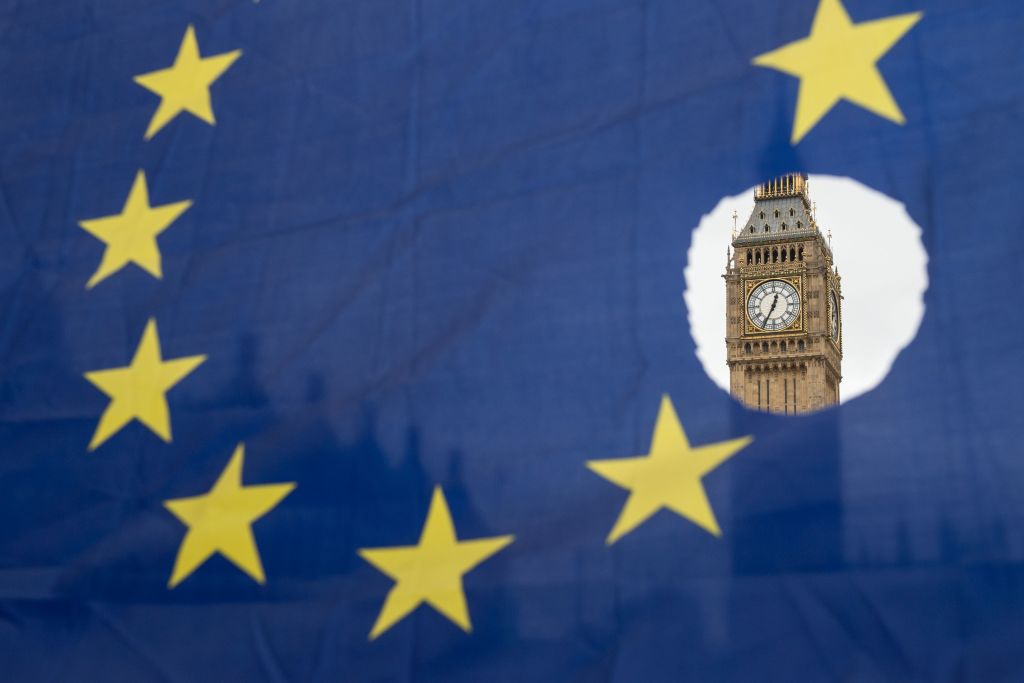From the very beginning, the whole question of British and European integration has turned fundamentally on the question of sovereignty, as Ursula von der Leyen accepted this afternoon. Those who favoured membership then and now dismiss sovereignty as a meaningless or outdated notion in a world of interconnection. The events of the last four years, and perhaps even more the last few days, should have made them think again. The question of fishing had the merit of making sovereignty concrete and understandable, which is why it became suddenly so crucial. You may decide to give or lend certain rights or powers to others, but who makes that decision? Who has the power to make the decision stick? In a nutshell, that is sovereignty, as fundamental today as ever.
When we voted in 2016, it was not wholly clear whether the United Kingdom was still a sovereign country. Professor Vernon Bogdanor, the eminent constitutional specialist, was not alone among legal experts in considering that the European Communities Act (1972) abrogated the sovereignty of parliament by recognising the legislative and judicial superiority of the EEC, and later the EU. The easy answer was that parliament could repeal that Act. The more difficult question was: would it? The decision was handed to the electorate in the 2016 referendum. Again, an act of sovereignty, this time exercised by the people. But again, as we all know, the real question was whether that decision would be carried out.
Sovereignty that cannot be exercised is sovereignty lost
Only then was the true question of sovereignty posed, not as a discussion among constitutional lawyers, but as raw political reality. Was the United Kingdom still a sovereign state? Whatever the legal theory, if the UK had given in to pressure and voted again to reverse its decision, it would have ceased in practice to be a sovereign state for the indefinite future. Sovereignty that cannot be exercised is sovereignty lost. By this criterion, EU member states (most obviously Greece, Ireland and Italy, and perhaps others where popular votes have been overruled) have in reality given up their sovereignty. Perhaps, indeed, they all have. President Macron frequently talks of ‘a sovereign Europe’. He may be right. Which other EU country, however much it grumbles, will dare to exit?
Britain’s uncertainty was ended by a reassertion of sovereignty by the entity that ultimately holds it in a democracy: the people. The referendum vote was confirmed by a series of elections. But the reality of sovereignty was still not secured. Sovereignty needs agents: in this case, Boris Johnson, his government, and his negotiators led by David Frost. Frost in a speech in Brussels last February said that ‘the EU must, if it is to achieve what it wants in the world, find a way of relating to its neighbours as friends and genuinely sovereign equals.’
This seemed to have fallen on deaf ears. The EU had at first threatened that Britain would be left ‘very lonely on the edge of the Atlantic,’ in the words of Manfred Weber, leader of the European People’s Party in the European Parliament. But when the Johnson government said that third-country status was just what it wanted, the EU insisted on the contrary that the UK must accept a dependent relationship because of its ‘economic interconnectedness and geographical proximity’. David Frost, in a polite but forthright letter on 19 May, retorted that this ‘is not an argument that can hope to be accepted in the 21st century.’
The EU appeared not to agree. Like a nineteenth-century imperial power, it was claiming that the UK must remain in its sphere of influence. Fishing rights, although in economic terms relatively minor, crystallised the issue. So did the reasonable-sounding demands for a ‘level playing field’ – the EU has shown a remarkable ability to control the linguistics of the debate. In fact it was insisting that the UK should remain subject to its own legislation and its own legal order. No neutral arbitration was to be permitted. By the end, it was demanding the right to control British law and policy over an indeterminate range of issues: anything, in fact, that it judged damaging to its own interest – which was not only to maintain its profitable export surplus in the UK, but even more to maintain the EU as ‘sovereign Europe’.
If the government had accepted this, would we in reality have been a sovereign state? Would we have been a real democracy, for democracy is meaningless without sovereignty? Or would we, like the unfortunate Greeks and Italians, have in reality accepted that we could no longer make political choices that were not approved by the EU? As Jean-Claude Juncker had summed it up bluntly, ‘Il ne peut y avoir de choix démocratique contre les traités européens’. A former British representative to the EU proclaimed in the House of Lords, with seeming satisfaction, ‘We will huff and puff but, in the end, we will basically come to heel.’
Well, today it seems we haven’t. Over the last few days in Brussels, the much vaunted unity of the EU seems to have crumbled. Despite what some ‘Remainers’ and pro-EU media in Britain have constantly proclaimed for four years, the British government showed that it meant what it said and calmly played its trump card. If the EU did not respect our sovereign rights, there would be no agreement and Britain would willingly trade on WTO terms. The EU knew what it stood to lose, and it sensibly backed down. Let us hope that this is the beginning of a period of sensible and friendly relations between the UK and the EU, rather than a new phase in the tug of war of the last four years. The challenge now is for present and future British governments to show that sovereignty is not an empty word, but the means of increasing the welfare of its people, finding a role in the world and consolidating the United Kingdom itself.







Comments